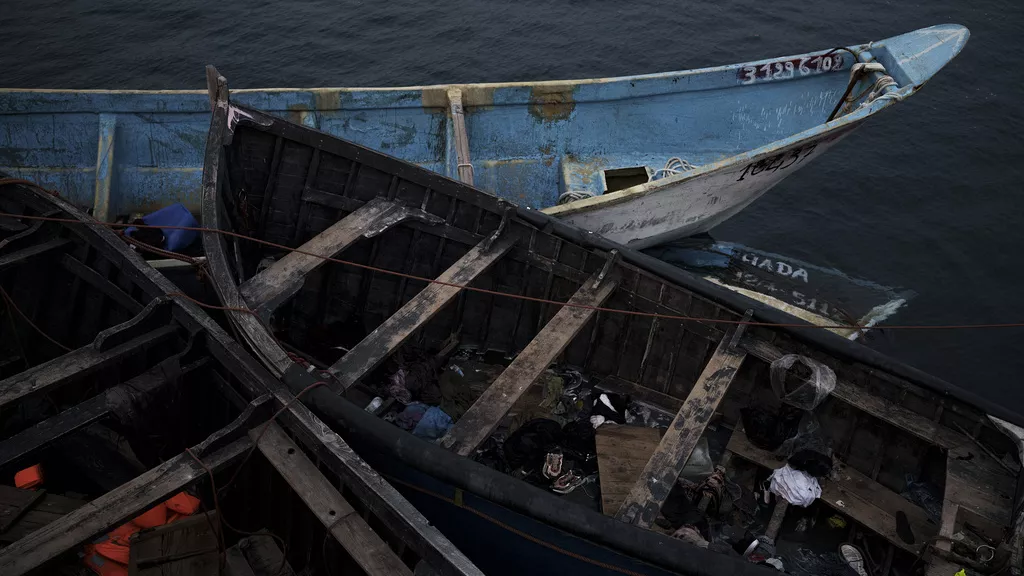Fatalities and Hope: 2 Dead, 38 Rescued in Migrant Crisis near the Canary Islands
Spanish maritime rescuers reported that they successfully rescued 38 individuals and recovered the remains of two others from a migrant boat attempting to reach the Canary Islands after departing from West Africa. The vessel was initially spotted by a merchant ship approximately 140 km south of Gran Canaria on Monday evening.
In response to the emergency, four individuals in critical condition were airlifted to a hospital via two helicopters, while the remaining 34 survivors, including seven women, were transported by boat to the port of Arguineguín, as stated by Spain’s maritime rescue service.
Spain is grappling with a surge in migrants and refugees arriving from West Africa, seeking passage to continental Europe through the Canary Islands. The archipelago has become a significant transit point for those fleeing poverty, conflict, and instability in the region.
According to the Spanish Interior Ministry, nearly 12,000 individuals arrived in the Canaries in the first two months of the year, a stark increase compared to the same period the previous year, which recorded just over six times fewer arrivals.
The migrants typically embark on perilous journeys from the Mauritanian coast using artisanal fishing boats known as pirogues. Navigating against strong winds and currents of the Atlantic, the journey spans several days, posing significant risks. While many manage to survive the arduous trip, some tragically perish or go missing along the way, with their remains occasionally being carried across the Atlantic.
In a related incident last week, two canoes that set out from Mauritania towards Spain were discovered adrift hundreds of kilometers away, near the Cape Verde archipelago, after failing to reach their intended destination. Despite the rescue of 11 survivors from one boat and five from the second, one person succumbed later on. Additionally, five bodies were found, and numerous others are feared to have been lost at sea.
The ongoing challenges in managing these migration flows underscore the need for coordinated international efforts to address the root causes and improve the safety of those seeking a better life across treacherous maritime routes.



















